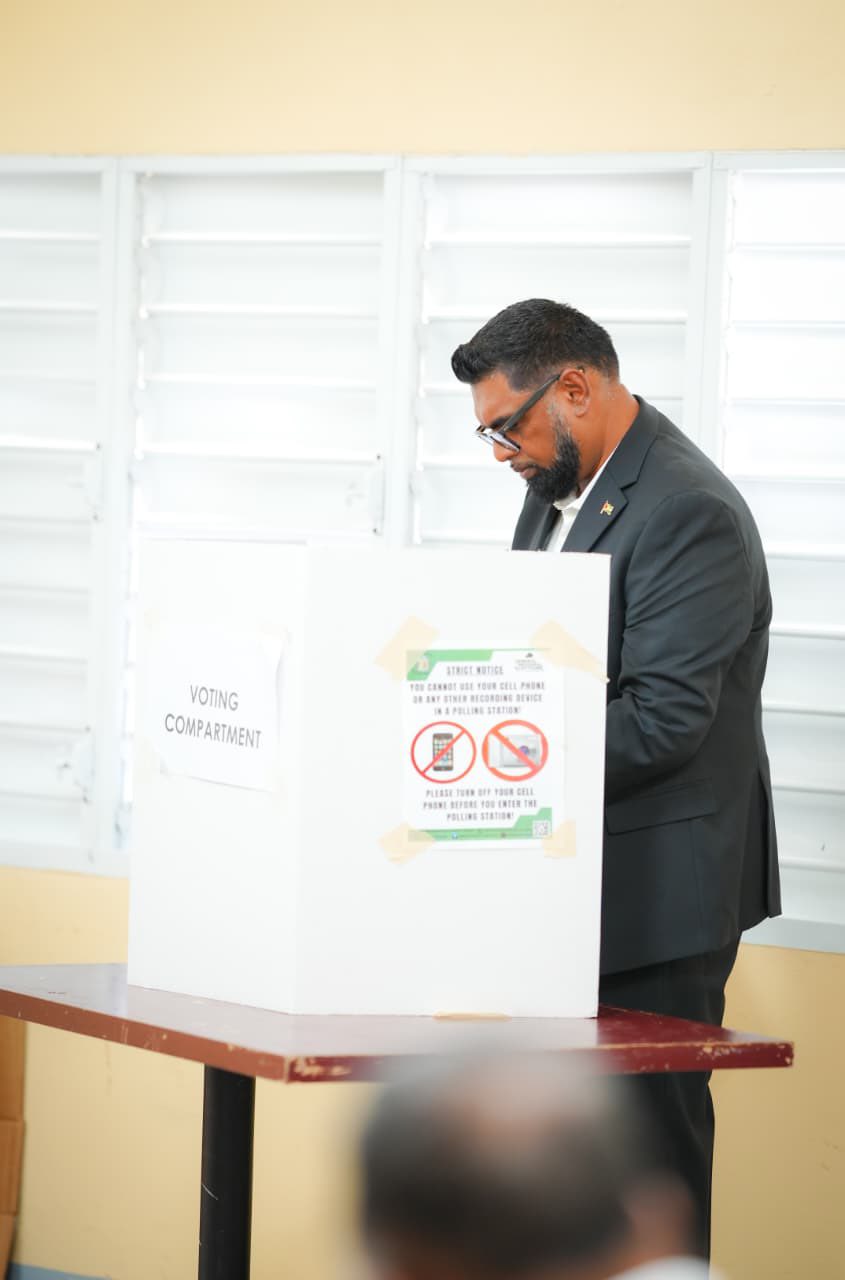Wrong is Wrong.
Right is Right.
Karma is Karma.
We Have All Lost.
The 2025 General and Regional Elections in Guyana are finished. Ballots were counted, results certified, parties have staked their claims, and the country turns a new page — yet the best measure of a democracy is not only who sits in office, but whether the system that put them there commands the trust of the people. What follows is a fact-led account and a reflective reading of what the vote has told us about the health of our politics and civic life.
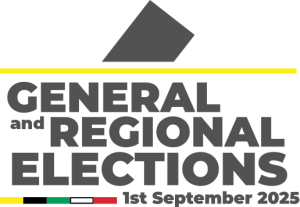
The facts — what happened, plainly
The elections were held on 1 September 2025. The Guyana Elections Commission (GECOM) met and certified the declared results in the days that followed, culminating in an official declaration of Dr Irfaan Ali and the People’s Progressive Party/Civic (PPP/C) as the winners of the General and Regional Elections. (News Room Guyana)
GECOM’s tabulations show the PPP/C received the largest share of votes and secured the presidency for a second term. The newly formed We Invest in Nationhood (WIN) party made a dramatic entry and emerged as the principal newcomer, winning multiple seats and—by the final tallies—supplanting A Partnership for National Unity (APNU) as the second-placed party in the National Assembly. Official declared vote totals and seat allocations released after certification provide the numeric backbone for that outcome. (Demerara Waves Online News- Guyana, DPI Guyana)
Turnout was notably lower than in recent cycles. International reporting and observer commentary placed voter participation roughly around the low-50s percentage range — a considerable drop from the high-60s and 70s turnout figures seen in earlier elections — and local tabulations put the number of voters who actually cast ballots at roughly 438,000. Low participation was one of the most important features of this contest. (AP News, Stabroek News)
In the immediate post-election days, some parties requested recounts and audits. Recounts conducted in selected districts produced minor adjustments in totals; where parties raised questions — notably APNU and WIN in particular instances — GECOM and returning officers moved to address those petitions through recounts and clarifications of statements of poll. These procedural challenges and the public airing of disputes extended the post-electoral period. (News Room Guyana, Demerara Waves Online News- Guyana)
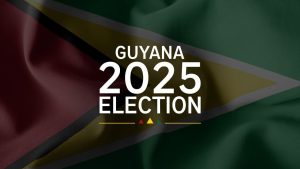
Wrong is Wrong — name the problems
Facts matter, even when they bruise.
• The election exposed persistent administrative problems that have dogged previous contests: contested voter lists, concerns about identification processes, and the absence of comprehensive reforms such as universal biometric verification or a fully modernised registry. These are not theoretical critiques; they are practical weaknesses that fuel mistrust. (Stabroek News)
• The rise of WIN — a fast-organised force that galvanised significant support — brought with it intensified scrutiny of candidate backgrounds and party financing. Rapid political realignments can be healthy, but they also demand rigorous transparency and vetting so that the electorate’s trust is not exchanged for short-term momentum alone. (AP News, Demerara Waves Online News- Guyana)
When institutional or administrative errors occur, when transparency is thin, the casualty is not simply a party or a politician — it is the credibility of the system itself.

Right is Right — what worked
There were genuine strengths to this process.
• Across hundreds of polling places observed by domestic and international teams, Election Day was largely peaceful and orderly; many polling staff performed diligently under pressure and ensured that voting and counting could proceed. The presence of observers and media helped maintain a level of public oversight. (The Carter Center)
• The electoral framework still produced a decisive outcome. The results — once certified — provided a clear distribution of seats and a working government mandate, which matters for governance during a period of profound economic change in Guyana. That clarity is important for the stability of state functions. (DPI Guyana)
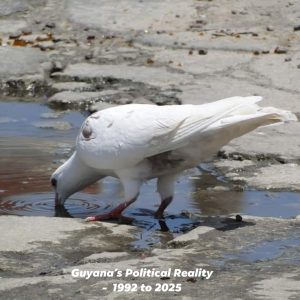
Karma is Karma — the message in the turnout and the discourse
“Karma” here is civic: the sum of actions, promises, omissions and practices returning to shape political realities.
• The low turnout is itself a message. Whether people stayed away out of disillusionment, fatigue, or a sense that elections bring little real change to daily life, the result is the same: reduced democratic legitimacy and a thinner mandate for hard governance choices ahead. (AP News)
• The intense post-election discourse — accusations, recount requests, media campaigns and rapid political realignment — shows how fragile public trust has become. The better part of democratic politics is the ability of defeated sides to accept verified outcomes and for winners to govern with an eye to rebuilding broader consent. When that does not happen cleanly, everyone pays the price. (News Room Guyana, Demerara Waves Online News- Guyana)
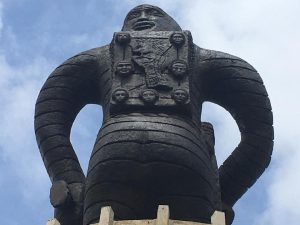
We Have All Lost — the national cost
A winning majority in parliament does not cancel out a legitimacy deficit caused by low participation and lingering procedural doubt. The real cost of an imperfect process is measured in what it makes harder to do: build consensus for equitable public policy, sustain investor and civic confidence, and enact reforms that require broad societal buy-in.
Guyana needs policies that address everyday concerns — housing, jobs, health, transparent management of oil revenues — and those policies require the trust and active participation of the people to be durable. Narrow or contested mandates make consensus-building harder and make governance riskier. (DPI Guyana, Stabroek News)
What comes next — practical, non-partisan priorities
- Publish full, reconciled turnout and registration data. GECOM should make every district-level statement of poll and the reconciled national registry available so civil society and observers can verify numbers independently. (News Room Guyana)
- Complete transparent audits of contested districts quickly. Where recounts have been requested, they should be handled publicly, expeditiously, and with published findings so disputes do not fester. (News Room Guyana)
- Legislate and fund pragmatic reforms. Biometric registration, clearer ID frameworks and campaign finance transparency should be cross-party priorities rather than electoral theatre. (Stabroek News)
Ites this — a civic call, not a partisan line
Wrong is Wrong. Right is Right. Karma is Karma.
We have recorded the winners and the numbers; we must now reckon with what the vote said about the condition of our democratic life. Until leaders — across the political spectrum — put credibility, transparency and national interest ahead of short-term advantage, the losses of 2025 will be paid by all of us.
We must reflect. We must act. We must rebuild trust.
Key sources
GECOM (official certification), Demerara Waves (seat/vote breakdown and analysis), Associated Press (international reporting and turnout), Stabroek News (local turnout analysis), News Room Guyana (recount reporting). (News Room Guyana, Demerara Waves Online News- Guyana, AP News, Stabroek News)


